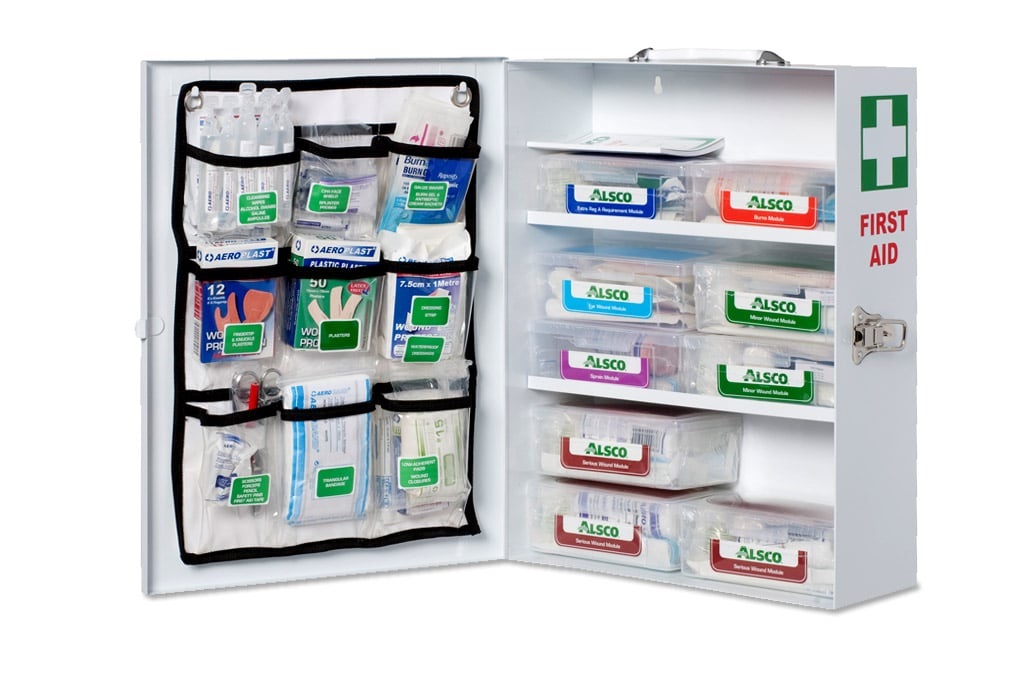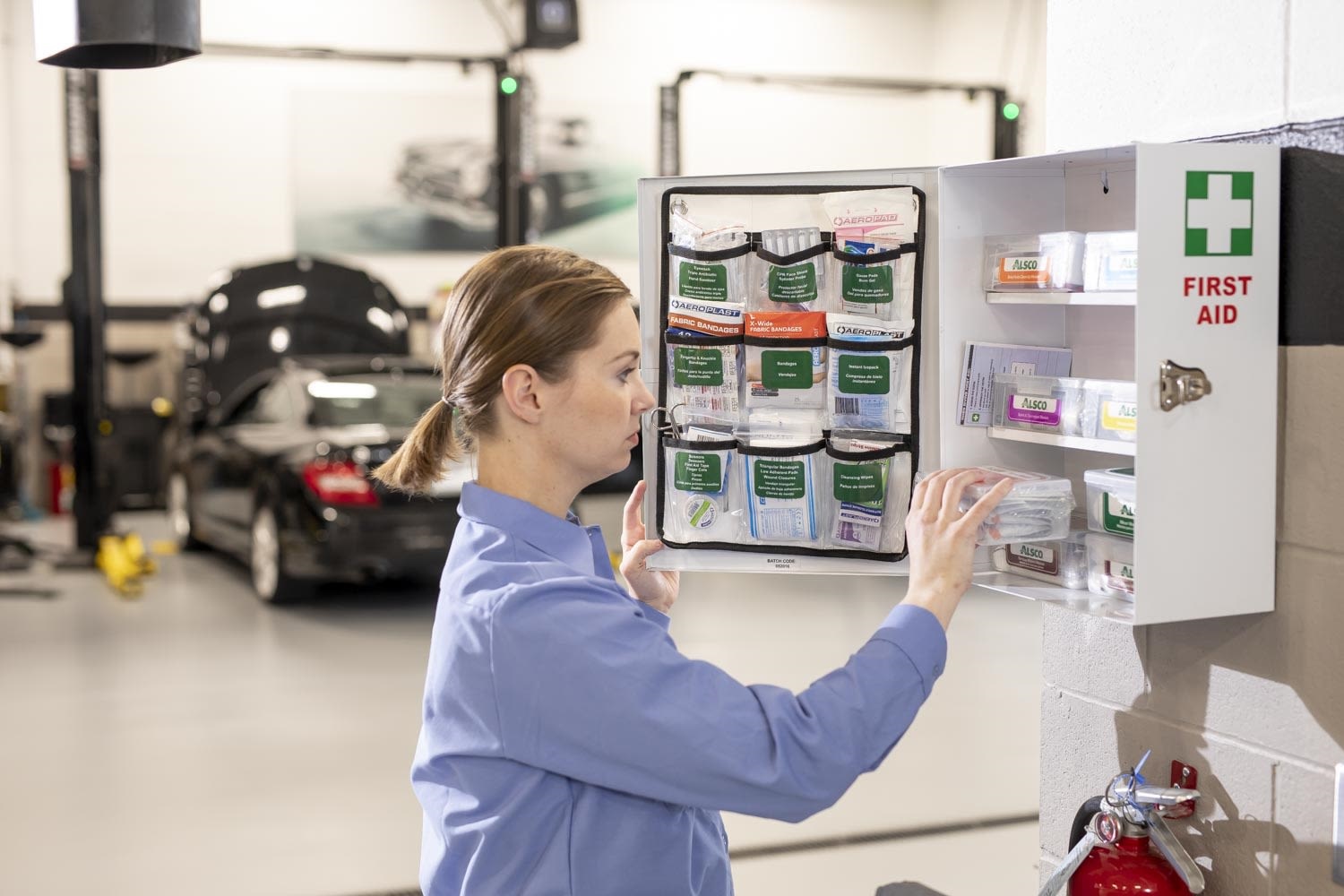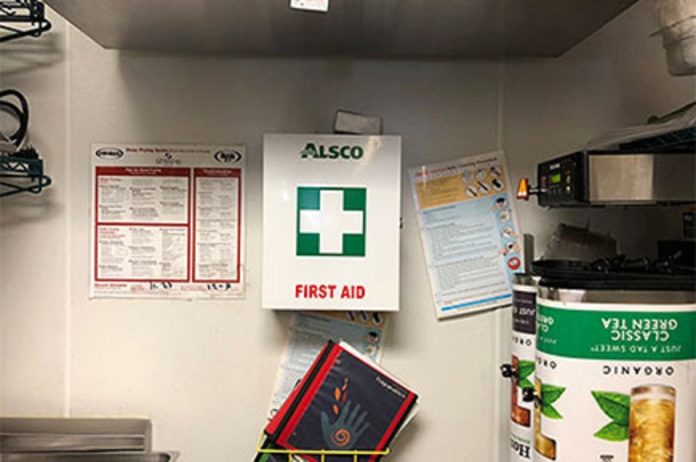A well-stocked first aid kit is essential for any office to handle minor injuries and medical emergencies. Here’s a list of items you should consider keeping in a first aid kit for the office:
- Adhesive bandages (various sizes): These are essential for covering small cuts, blisters, and abrasions.
- Sterile gauze pads and adhesive tape: Use these for larger wounds and to help stop bleeding.
- Antiseptic wipes or solution: To clean wounds and prevent infection.
- Tweezers and scissors: For removing splinters, cutting tape, or trimming bandages.
- Disposable gloves: To protect the first aider and the injured person from contamination.
- Pain relievers: Non-prescription pain relievers like acetaminophen or ibuprofen can be helpful for headaches, minor aches, or pains.

PC: First Aid
- Tweezers and magnifying glass: For removing small splinters or foreign objects from the skin.
- Thermometer: To monitor body temperature if someone is feeling unwell.
- CPR face shield or mask: In case you need to perform cardiopulmonary resuscitation (CPR).
- Instant cold packs: To reduce swelling or soothe minor burns.
- Elastic bandages: For wrapping sprains and strains.
- Disposable sterile gloves: To protect against contamination when providing first aid.
- First aid manual or instructions: It’s important to have guidance on how to respond to various medical emergencies.
- Emergency contact numbers: Include phone numbers for local emergency services, your company’s medical professionals, and any relevant employee contacts.

PC: Alsco
- Eyewash or saline solution: To flush out foreign substances from the eyes.
- Antihistamine tablets: For allergic reactions or insect stings.
- A flashlight and extra batteries: Useful in case of power outages or when you need to assess injuries in low-light conditions.
- Burn cream or gel: For minor burns and scalds.
- Disposable face masks: For additional protection during first aid procedures, especially in situations where infection control is essential.
- Splint and triangular bandages: For immobilizing fractures or providing support to injured limbs.
Remember to periodically check the contents of your office first aid kit to ensure that items are not expired, damaged, or missing. Additionally, designate a responsible person in the office to be trained in first aid and CPR to ensure that they can respond effectively to medical emergencies when needed.






